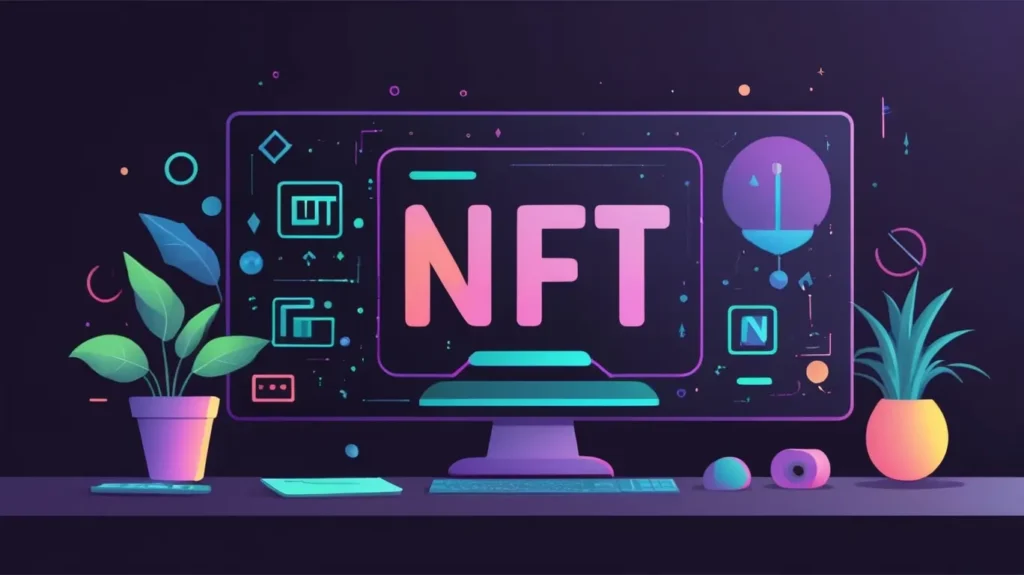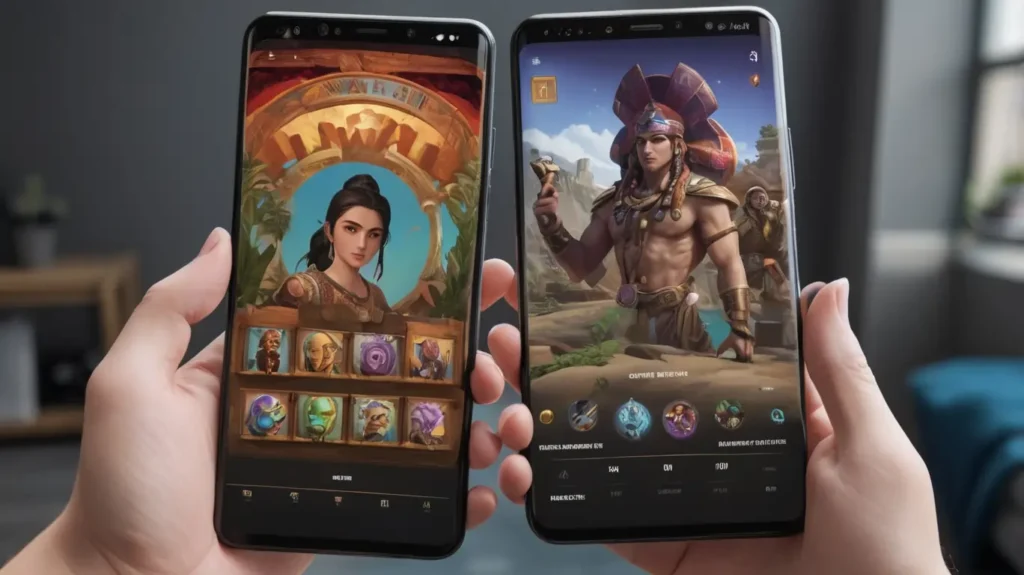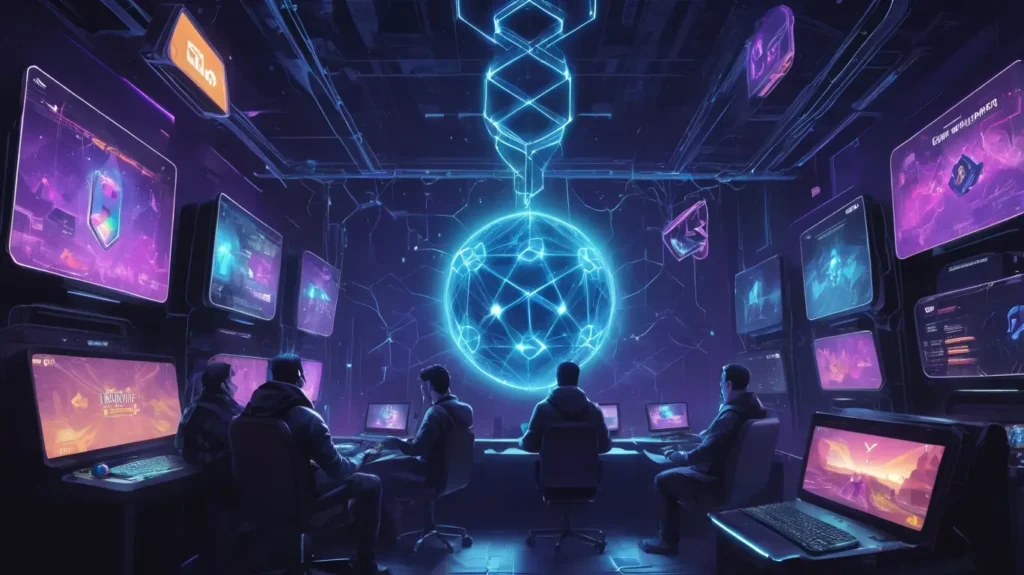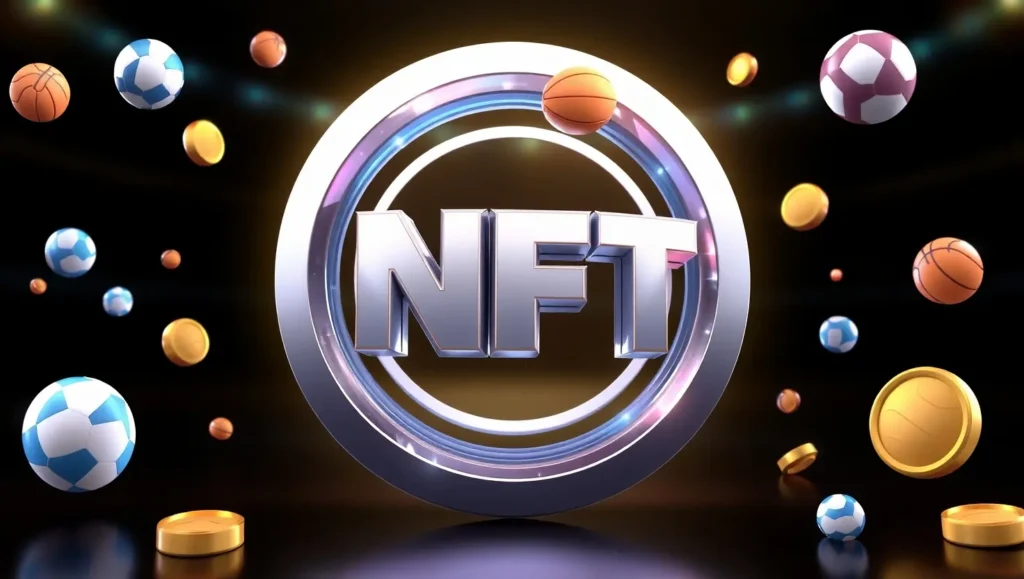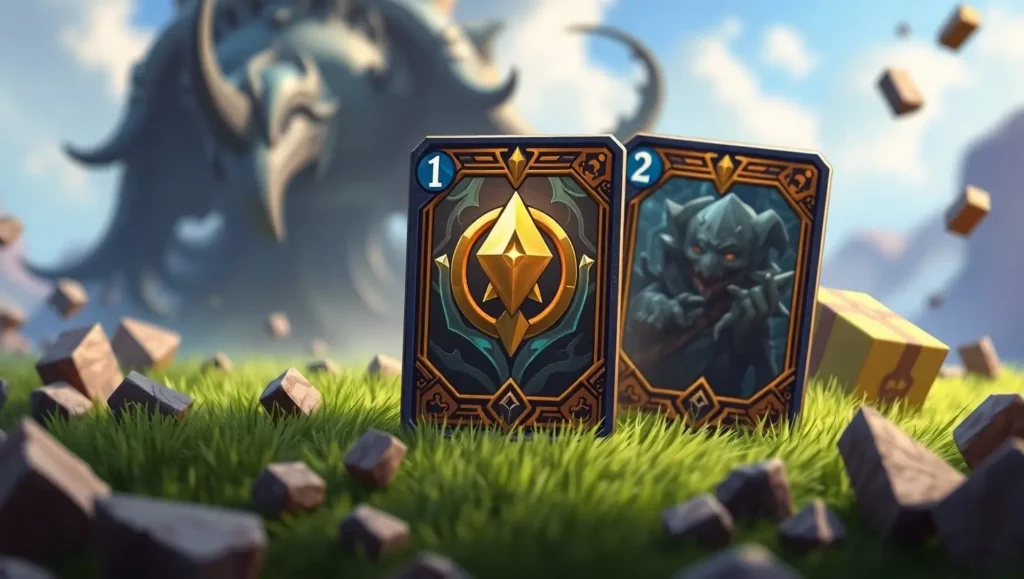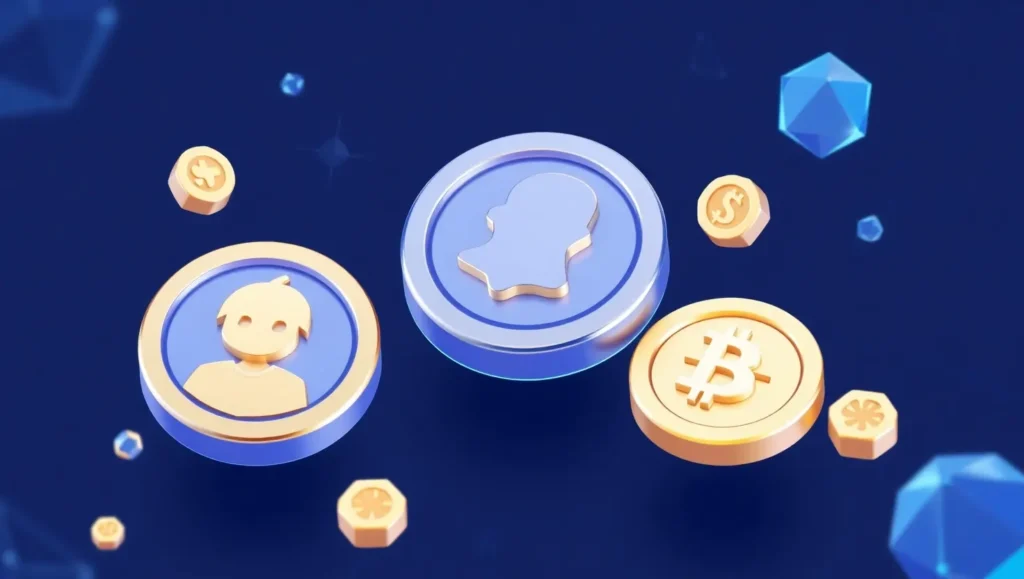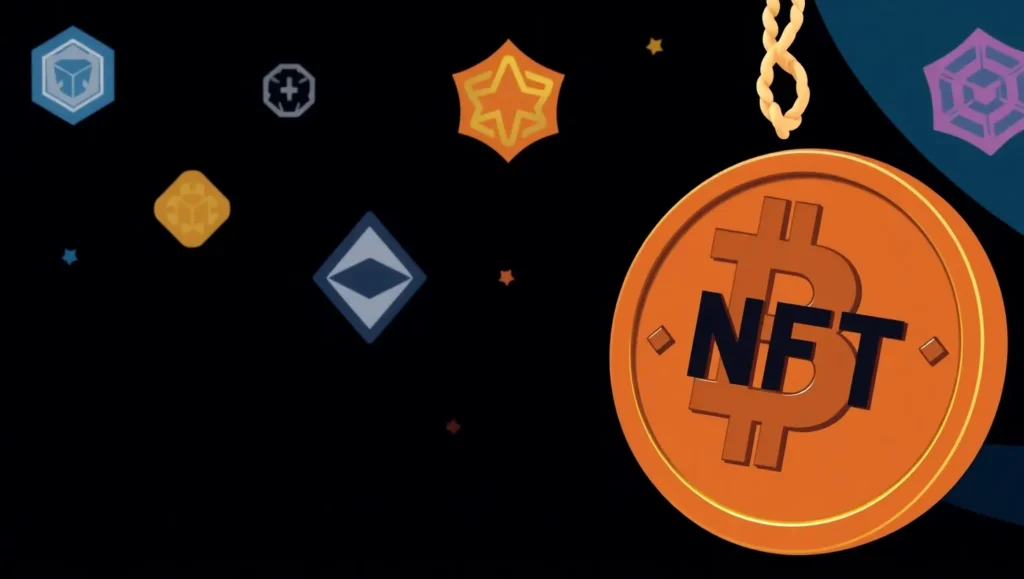In recent years, NFT card games have emerged as a fascinating intersection of gaming, technology, and economics. As fans of both video games and the innovative blockchain technology that powers these new types of games, we’ve watched with excitement as digital ownership took center stage. NFT (non-fungible token) card games combine the thrill of strategic card play with the security and uniqueness of blockchain assets. Players are not wasting hours on repetitive games; they’re building, trading, and testing out their luck & skills on assets that they own.
What are NFT Card Games?
NFT card games leverage the unique properties of blockchain technology to ensure ownership and scarcity of digital cards. NFTs are special because each token is unique, unlike cryptocurrencies like Bitcoin or Ethereum. This gives each card a distinct value determined by rarity, demand, or individual attributes encoded into its blockchain record.
How Do They Work?
In NFT card games, smart contracts automate and secure each card’s creation, trade, and usage across the gaming universe. Players interact with these cards similarly to traditional card games—collecting, trading, and battling—but with the added benefit of verified ownership and potential for real-world value through crypto exchanges. These games thus create communities of players who engage not just in gameplay but also in digital marketplaces.
Key Features of NFT Card Games
Ownership and Provenance
Blockchain technology guarantees ownership rights and provenance, ensuring players truly own their digital cards. This transparency builds trust and adds legitimacy to trades and contests.
Gameplay Mechanics
These games often incorporate evolving gameplay mechanics. Cards can change and evolve, offering dynamic gameplay that traditional card games can’t match. Such features keep players engaged, allowing for unique strategies and playstyles.
Popular NFT Card Games
We’ve compiled a list of engaging NFT card games, each offering unique themes, mechanics, and communities. Let’s explore:
1. Sorare
Sorare takes fantasy sports to a new level by integrating blockchain technology into the world of football. Players collect digital cards representing real-life footballers, which are tradable, and earn points based on their real-world performances each matchday. The appeal of Sorare lies in its blend of strategic team-building and the unpredictability of live sports. Fans get to combine their love of football with a unique digital trading card experience. What’s exciting is watching your team succeed, not just for game points but for potential earnings, as the value of cards can fluctuate based on player performance and market demand.
2. Gods Unchained
As a free-to-play tactical trading card game, Gods Unchained offers a remarkable experience by ensuring that players fully own their in-game items. Set in a mythological universe, players duel using decks of cards featuring gods, creatures, and spells. With cards earned through gameplay or purchased, each has intrinsic, verifiable value through the blockchain. This ownership model empowers players, allowing them to trade and sell cards as they see fit, enriching the community with both competitive and economic incentives.
3. Parallel
Parallel combines an immersive sci-fi theme with strategic card play. The game is set in a future where factions vie for control, each faction offering unique decks and play styles. Players build decks from cards that represent futuristic technology and lore-rich characters. With a focus on narrative depth, each game feels like a step deeper into a meticulously crafted universe. The blockchain ensures that each card, whether it’s a common soldier or a rare artifact, carries provenance and trade potential, creating layers of strategy and storytelling.
4. Splinterlands
Known for its quick-paced battles and strategic depth, Splinterlands allows players to collect and battle with a wide array of cards in numerous combinations. Players engage in battles by selecting cards with different abilities, trying to outsmart their opponents through strategic placement and selection. Blockchain technology underlies each card, making them verifiable digital assets. The game encourages community interactions through tournaments and guilds, fostering a competitive yet friendly environment where strategy and collection prowess are equally rewarded.
5. Dark Country
Combining elements of Westerns and the supernatural, Dark Country presents a rich narrative-driven experience. Players enter an eerie world filled with gunfights, ghosts, and gritty atmospheres, choosing from cards that represent cowboys, spirits, and more. The game delivers both single-player campaigns and player-versus-player matches, with each card backed by blockchain for real ownership. This integration not only enriches the story but also allows players to invest in their decks as meaningful collections or trade them for profit.
6. CryptoSpells
CryptoSpells merges traditional trading card gameplay with blockchain technology. Players can purchase card packs or earn them through gameplay, with each card being a digital asset that players own. This model enables trading on secondary markets, adding a financial strategy layer on top of the gameplay. The game’s design emphasizes player-versus-player duels, where strategic card deployment is key to success, making it both a tactical and economic challenge.
7. Skyweaver
Skyweaver invites players into its colorful world where they can engage in battles across its fantasy universe. Players collect cards through gameplay, which they can then use to build powerful decks. Skyweaver emphasizes balance, ensuring that skill and strategy triumph over mere collection size. Blockchain technology underpins the cards’ ownership, allowing players to truly own, trade, or collect them, thereby intertwining gameplay and market strategy.
8. The Sandbox
Although not a card game in the traditional sense, The Sandbox features card-like NFT assets within its expansive virtual world. Players create, share, and monetize gaming experiences within a broad metaverse. Assets or “elements” can be traded or used, similar to cards, to alter the environment or create new game mechanics. The game is driven by player creativity, with blockchain ensuring that every creation, from simple assets to complex games, is unique and tradable.
9. Axie Infinity
Axie Infinity blends collectible card mechanics with creature battles, where players utilize cards to deploy abilities in battles. Each “Axie” serves as a card, complete with unique skills and attributes that affect gameplay strategies. Players assemble teams to battle in adventure modes or player-versus-player contests, with successful strategies forming a micro-economy through card trades. The game’s vibrant community supports an ecosystem where players can earn and trade diligently, making each win potentially profitable.
10. Chainmonsters
In Chainmonsters, players explore an expansive RPG universe, capturing and training creatures represented by NFT cards. Combining classic RPG exploration with strategic card collection, the game offers a mix of battling, trading, and evolving numerous digital creatures. The blockchain ensures that each capture is recorded, asserting ownership and value in a market ecosystem. The game appeals to fans of collectible games and those who enjoy strategic planning against increasingly challenging foes.
11. Mythereum
Set in a mythical realm filled with legends and lore, Mythereum challenges players to construct decks of powerful creatures and spells. Each game combines traditional card strategies with modern economic mechanics, leveraging the NFT framework to ensure secure trades. Every card in Mythereum can have a financial life beyond its gameplay, creating a vibrant community where economic acumen complements tactical prowess. Players are drawn to its story-rich environment and the strategic complexity it provides.
12. Lost Relics
Lost Relics explores the intersection of action RPGs and card collecting, where each item discovered in its dungeon crawls is an NFT. The game offers a thrilling mix of exploration and combat, with players delving into dungeons to find rare loot that holds tangible value due to its blockchain backing. The thrill of uncovering a rare item brings real-world excitement akin to adventure games, enhanced by the market potential each find represents on the blockchain.
Finishing Thoughts
In exploring these games, we’ve witnessed how NFT card games offer a bridge between traditional gaming enjoyment and cutting-edge digital ownership. Whether you’re a seasoned player or a newcomer, there’s a unique experience waiting in the evolving world of blockchain card games. As we look to the future, the fusion of gaming and technology promises to continue transforming our understanding of digital play and ownership.
How do I start playing NFT card games?
To start playing NFT card games, you’ll need a digital wallet to store your NFTs and some cryptocurrency to buy your first cards. Platforms often have tutorials to guide new players through setup and initial gameplay.
Are NFT card games secure?
Yes, NFT card games are generally secure, as they utilize blockchain technology to protect digital assets and ensure transparency in trades and ownership. However, ensure you use well-established platforms and safeguard your private keys.
Can NFT card games become profitable?
Yes, NFT card games can be profitable. Players often trade rare cards on marketplaces, deriving real-world value from their collections. Profits depend on market trends, rarity, and demand.
